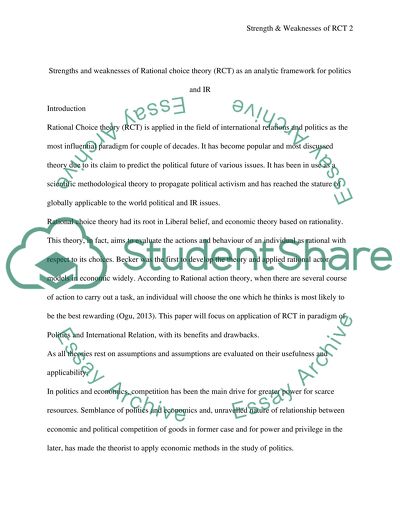Cite this document
(Strengths and Weaknesses of Rational Choice Theory (RCT) as an Coursework, n.d.)
Strengths and Weaknesses of Rational Choice Theory (RCT) as an Coursework. https://studentshare.org/politics/1674568-assess-the-strengths-and-weaknesses-of-rational-choice-theoryrct-as-an-analytic-framework-for-politics-and-ir
Strengths and Weaknesses of Rational Choice Theory (RCT) as an Coursework. https://studentshare.org/politics/1674568-assess-the-strengths-and-weaknesses-of-rational-choice-theoryrct-as-an-analytic-framework-for-politics-and-ir
(Strengths and Weaknesses of Rational Choice Theory (RCT) As an Coursework)
Strengths and Weaknesses of Rational Choice Theory (RCT) As an Coursework. https://studentshare.org/politics/1674568-assess-the-strengths-and-weaknesses-of-rational-choice-theoryrct-as-an-analytic-framework-for-politics-and-ir.
Strengths and Weaknesses of Rational Choice Theory (RCT) As an Coursework. https://studentshare.org/politics/1674568-assess-the-strengths-and-weaknesses-of-rational-choice-theoryrct-as-an-analytic-framework-for-politics-and-ir.
“Strengths and Weaknesses of Rational Choice Theory (RCT) As an Coursework”. https://studentshare.org/politics/1674568-assess-the-strengths-and-weaknesses-of-rational-choice-theoryrct-as-an-analytic-framework-for-politics-and-ir.


